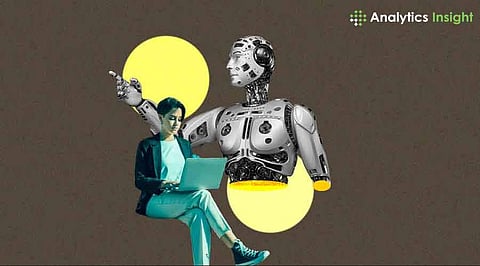

The Artificial Intelligence(AI) revolution in robotics makes robots smarter, faster, and more efficient. Industries worldwide are using AI-driven robots to increase efficiency and cut expenses.
Robots have existed for decades, but they were limited to pre-programmed tasks. Machine learning and automation are making robots learn and adapt.
A 2023 report by McKinsey found that robotics powered by AI could increase global gross domestic product (GDP) growth by up to $4.4 trillion annually. This demonstrates the growing dominance of AI in the robotics space.
Traditional robots operate from set commands. AI robots are capable of data processing and decision-making, which helps them prepare for the unknown.
For example, AI robots deployed in the warehouse optimize storage and search for quick delivery routes. Amazon deploys such robots to increase efficiencies.
AI makes automation intelligent. Human contribution has become greatly limited since robots can do much of our dirty work. AI-powered robots manufacture products, point out defects, and manage inventory in manufacturing plants.
According to the International Federation of Robotics (IFR), there should be 3.5 million industrial robots by 2025. AI is driving this growth.
AI allows robots to work safely alongside humans. For example, in the manufacturing industry, Cobots (collaborative robots) can detect human movement and adapt their behavior based on this feedback.
Cobots assist workers in various industries, such as healthcare and manufacturing. This saves labor and improves workplace safety.
AI-powered robots learn from experience. And it gets better the more it is used, using machine learning.
Self-driving cars, for example, use AI to study traffic patterns and improve navigation. Companies like Tesla and Waymo also utilize AI to enhance the experience with self-driving vehicles.
Service robots are becoming increasingly common in homes and help businesses run smoothly. AI powers personal assistants, cleaning robots, and even robotic chefs.
According to a recent Statista report, the global market for service robots is predicted to reach $50 billion by 2030. This expansion in growth is largely due to AI.
The robotics industry will continue to develop. AI will allow robots to perform increasingly difficult tasks and communicate with people better.
Due to advancements in deep learning and computer vision, robots are becoming more independent. This will lead to new applications in agriculture, medicine, construction, space exploration, and more.
Artificial intelligence is revolutionizing robotics. It is making robots intelligent, adaptive, and efficient. From industrial automation to service robots, AI is changing the face of the world.
With the growing technology, the applications of AI in robotics will grow excessively. Automaton is the future, and there is no looking back.
